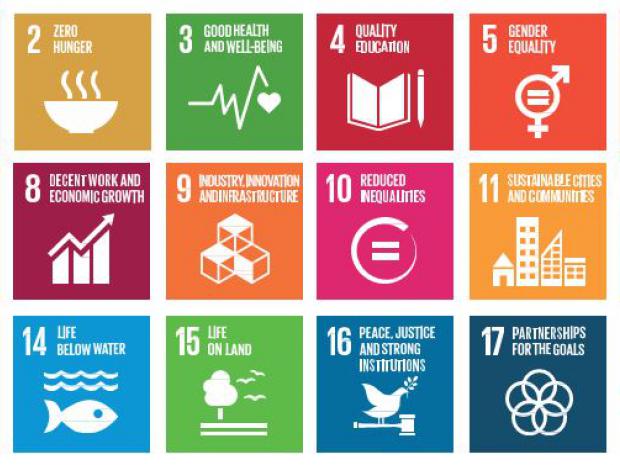The 2030 Agenda for sustainable development: Achieving the industry-related goals and targets

Inclusive and Sustainable Industrial Development and the 2030 Agenda for Sustainable Development
The Sustainable Development Goals (SDGs) constitute the core of the 2030 Agenda for Sustainable Development adopted by the international community on 25 September 2015, the new development framework that seeks to transform our world and will guide all global, regional and national development endeavours for the next 15 years. These
Goals, and their associated targets, frame the 2030 Agenda with the vision and ambition to both achieve a balance among the three dimensions of sustainable development – environmental, social and economic – and integrate them into a universal and visionary framework for global cooperation and action. This integrated approach intrinsically recognizes the interrelated nature of all goals and targets, their trade-offs and synergies.
UNIDO’s goal of achieving ISID is explicitly recognized and anchored within the internationally agreed 2030 Agenda.
UNIDO’s extensive and widely recognized knowledge and expertise in supporting countries in their sustainable industrialization efforts make the Organization a reference institution for the implementation all these industry-related aspects in the SDGs, as well as the follow-up and review of progress towards the related achievements.
UNIDO’s contribution to the 2030 Agenda will be most visibly recognized in the progress nations will make on SDG-9. However, according to UNIDO’s analysis, the multiplier effect of industrialization on all other areas of development will further reinforce UNIDO’s contribution to the achievement of the development goals in their entirety.
Directly through its contribution to Goal 9, or indirectly through programmatic or thematic involvement in other SDGs, UNIDO supports the achievement of the agenda at large.
For the sake of simplicity, the present document summarizes the contribution of UNIDO’s mandate as well as current and planned future activities vis-à-vis the SDGs, with a special focus on SDG-9, which highlights and affirms the critical importance of ISID and its contribution to all 17 goals.
UNIDO’s vision to address today’s economic, social and environmental challenges is enshrined in the Lima Declaration, which was adopted by UNIDO Member States in December 2013.
On this basis, the Organization pursues Inclusive and Sustainable Industrial Development to harness industry’s full potential to contribute to lasting prosperity for all.
The mandate is based on the recognition by Member States that poverty eradication “can only be achieved through strong, inclusive, sustainable and resilient economic and industrial growth, and the effective integration of the economic, social and environmental dimensions of sustainable development.”
Inclusive and sustainable industrial development (ISID) means that:
- Every country achieves a higher level of industrialization in their economies and benefits from the globalization of markets for industrial goods and services.
- No one is left behind in benefiting from industrial growth, and prosperity is shared among women and men in all countries.
- Broader economic and social growth is supported within an environmentally sustainable framework.
- The unique knowledge and resources of all relevant development actors are combined to maximize the development impact of ISID.
Log in with your EU Login account to post or comment on the platform.